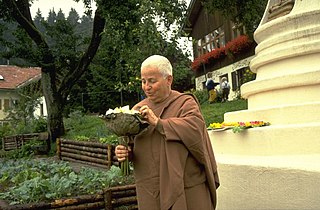A Quote by Andy Dunn
It is obvious, in retrospect, to lean on those who love us most. With depression, in part because of the shame attached to it, it's harder to be honest.
Quote Topics
Related Quotes
There is enormous shame around depression of any kind and at any time. And there's enormous social stigma attached to it, which we need to go on fighting. But I think that the sense of depression during pregnancy and early motherhood has been particularly stigmatized, that people especially feel that should be the happiest time of your life.
One cannot be honest even at the end of one's life, for no one is wholly alone. We are bound to those we love, or to those who love us, and to those who need us to be brave, or content, or even happy enough to allow them not to worry about us. So we must refrain from giving pain, as our last gift to our fellows.
The love to which ego is attached is a form of jealousy - this is why nobody is as jealous as lovers are. The love which is attached to the ego is a conspiracy and a trick to possess the other. It is a conspiracy - that is why nobody suffocates so many people as those who talk of love. This situation is created because of the 'love' which comes from the ego - there can never be any relation between love and the ego.
Real grief is not healed by time... if time does anything, it deepens our grief. The longer we live, the more fully we become aware of who she was for us, and the more intimately we experience what her love meant for us. Real, deep love is, as you know, very unobtrusive, seemingly easy and obvious, and so present that we take it for granted. Therefore, it is only in retrospect - or better, in memory - that we fully realize its power and depth. Yes, indeed, love often makes itself visible in pain.
I love secrets. Here's a bunch of people who think they know each other over a long period of time. And they do. And they don't. Secrets aren't the same thing as shame, but they can fall in that category. I'm very interested in the ways that people are open and honest with one another and simultaneously in hiding. What we know about those we love is only part of the story. Who do we protect with our secrets? Others? Ourselves? These are questions that interest me in fiction. The public and the private self.
When people say there is a 'reason' for the depression, they insult the person who suffers, making it seem that those in agony are somehow at fault for not 'cheering up.' The fact is that those who suffer - and those who love them - are no more at fault for depression than a cancer patient is for a tumor.



































